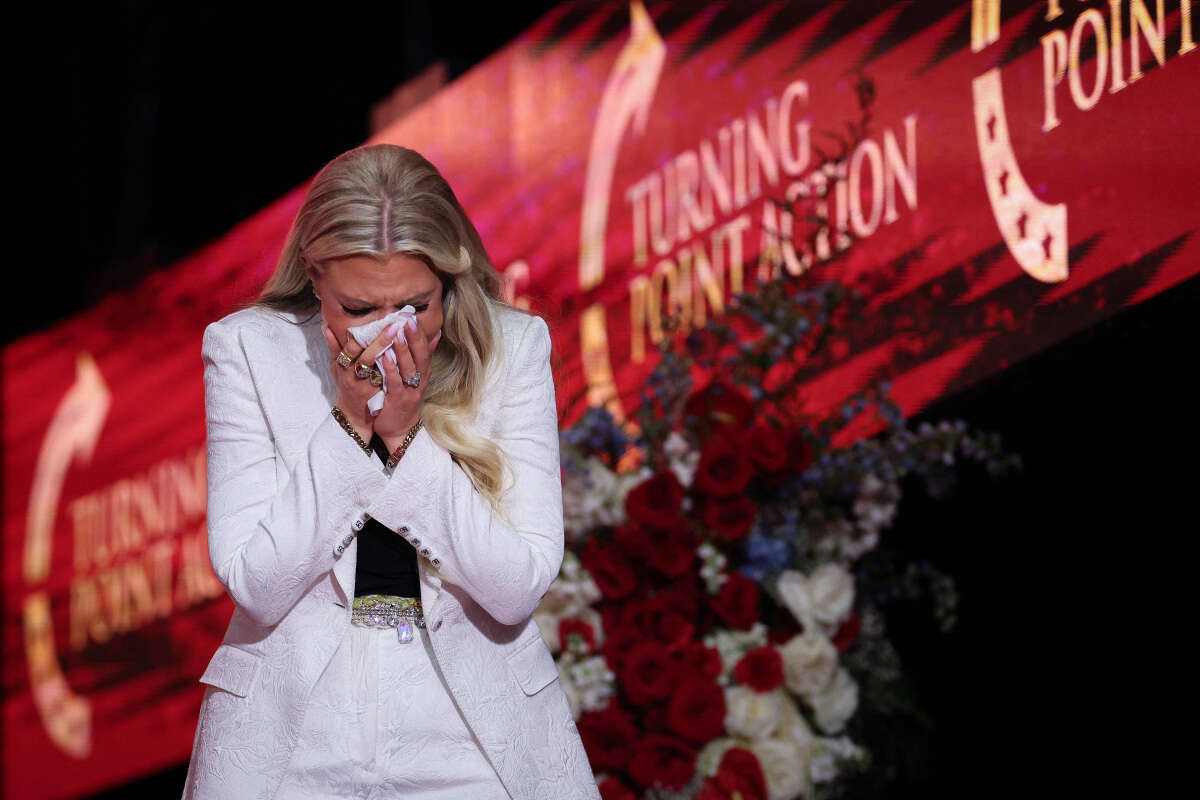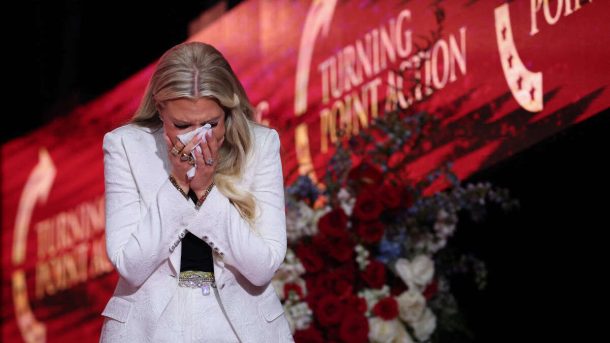The memorial service had ended. The last notes of the hymn lingered in the air as people quietly filed out of the hall, their footsteps echoing against the walls. Flowers lay scattered near the altar, their fragrance mixing with the weight of sorrow that seemed to cling to the room. Erika Kirk stood near the front, her posture straight but her face pale, as if the effort of standing was itself an act of will.
For hours, she had greeted mourners with soft words, nods, and faint smiles that barely hid the storm in her chest. The service had been for her late husband, Charlie Kirk, and though she had held herself together for the sake of appearances, the strength she clung to was fragile.
And then, when almost everyone had gone, it happened. Erika suddenly swayed, her body giving way under the unbearable burden she had carried in silence. She collapsed onto the floor, and the few people who remained rushed to her side in alarm. Gasps filled the air, and voices rose in panic as someone quickly called for help.

An ambulance arrived within minutes. The paramedics lifted her gently, their movements swift but careful, as if the slightest touch might shatter her already fragile state. Sirens pierced the evening stillness as she was taken to the emergency room, leaving behind a crowd stunned and shaken by yet another blow of tragedy.
At the hospital, doctors worked quickly to stabilize her. It did not take long for them to explain what had happened. Erika had been battling severe anemia and malnutrition, her body worn thin by exhaustion and neglect. In her grief over losing Charlie, she had stopped caring for herself, her appetite fading, her sleep restless, her health declining quietly until it reached a dangerous point.
Grief is not just an emotional wound—it seeps into the body, draining strength, stealing vitality, blurring the will to endure. For Erika, the pain of losing her husband had been more than her heart could carry, and paired with her weakening health, it had finally pushed her beyond her limits.
Those who loved her were devastated by the revelation. Friends recalled how they had urged her to eat, to rest, to take care of herself, but she had always brushed them off with a gentle smile and a promise that she would be fine. Now, it was clear she had been fighting silently, her body giving warnings she chose to ignore, lost in the darkness of mourning.
The image of Erika collapsing at the memorial service has left an imprint on everyone who witnessed it. It was more than a physical fall—it was the visible breaking of a heart that had been carrying too much for too long. In that moment, she was no longer the composed widow standing with grace before a crowd. She was a woman stripped bare by grief, fragile and human, needing care as much as she once gave it.

Doctors say her condition, while serious, is treatable. With proper rest, nutrition, and support, she has a chance to recover. Yet, recovery will not only be about rebuilding her strength, but about learning to live in a world that feels emptier without the man who once stood beside her.
The story of Erika Kirk’s collapse is a reminder that grief has no neat timeline, no predictable path. It can consume silently, wearing down both body and soul. And sometimes, it is only when tragedy strikes again that the depth of a person’s suffering becomes visible.
For now, prayers are being whispered, candles lit, and hearts lifted in hope that Erika will find the strength to heal. The world has seen her broken by loss, but perhaps, in time, it will also see her rise again—not unscarred, but stronger in the memory of the love she once shared.



